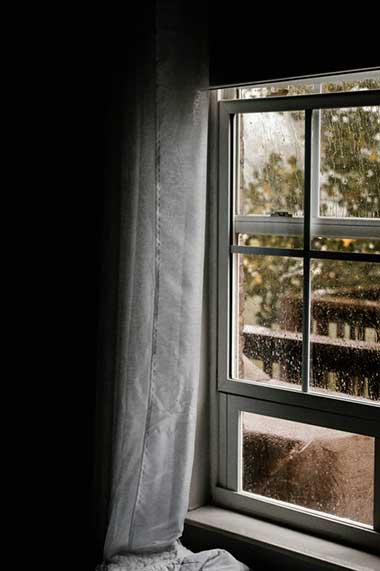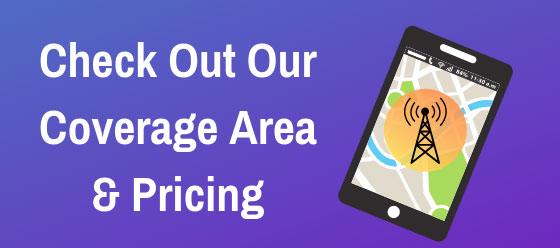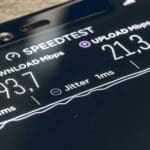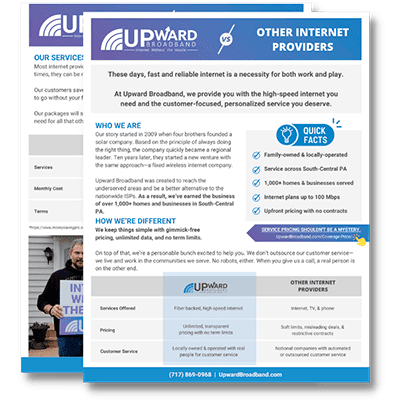Rain, sleet, snow, or hail, can fixed wireless deliver your internet?
If you’re thinking about getting fixed wireless internet service, this is probably a question that’s crossed your mind. If you’re paying for a service, you want to be sure you have access to it when you need it, and that isn’t only when the weather is nice.
In general, fixed wireless broadband maintains its connection during poor weather conditions. We’ll take a look at the reliability of your fixed wireless connection when it comes to mother nature.
Fixed Wireless Internet Isn’t Satellite Internet
The difference between fixed wireless internet and satellite internet is about 19,990 miles.
When it comes to satellite internet, the receiver on your home or business is communicating with a satellite orbiting Earth about 20,000 miles away. With fixed wireless internet, your receiver is communicating with a tower that’s about 10 miles away or less.
This huge reduction in the distance not only reduces latency and improves speed, but it also improves connectivity. A storm blowing through the next state over won’t knock out your internet connection as it may with satellite. This is because with fixed wireless, the connection is local. The signal is not traveling through miles and miles of Earth’s atmosphere and variable weather patterns to connect you. It’s just traveling down the street or across the field.
Fixed Wireless Internet During Rain

Fixed wireless internet offers a stable connection through most rain and storms.
Because a fixed wireless tower is as tall as an average cell phone tower, they stay, for the most part, well below the storm clouds. That means in inclement weather conditions those radio waves can maintain a line of sight with your receiver, whereas a satellite located high above the clouds wouldn’t be able to.
While fixed wireless towers are under the clouds, they’re still not out of the rain. It’s possible that the radio signals will be susceptible to something called rain fade.
Rain fade is when moisture in the air – be that rain, humidity, fog – reduces the strength of the signal, depending on the frequencies of the radiowaves.
While the frequencies used to connect customers to towers is not susceptible to rain fade, it is possible that precipitation can affect the 11 GHz licensed frequencies used to transmit the connection from tower to tower. To combat this, antennas are designed to have extremely high reliability accounting for rain and high humidity events. That means your internet connection shouldn’t slow down or be affected by the morning mist or a heavy afternoon rain shower.
Whether you’re looking for internet for your home or your business, having a high-speed internet connection that’s reliable is becoming more and more important to daily life. In areas where these options are otherwise limited, fixed wireless internet is creating a new option.
Not only does it offer a fiber-optics-backed connection that is often much quicker than DSL or satellite, but it is also less susceptible to weather conditions and the high latency associated with satellite internet.






[…] fixed wireless internet also offers a stable, reliable internet connection, even in poor weather conditions. Unlike satellite internet, the connection to fixed wireless internet is local, meaning it is not […]